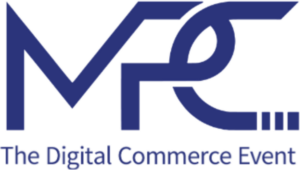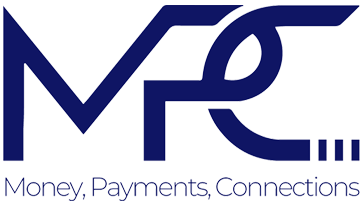Ringing in the New Year with MPC’s Board of Advisors
 The approaching new year will bring opportunities, challenges and new technologies to the digital commerce sphere. MPC sat down with several members of our advisory board to get their take on 2023. Following are excerpts from our backstage interviews with Travis Dulaney, Greg Wilfahrt, and Will Hernandez.
The approaching new year will bring opportunities, challenges and new technologies to the digital commerce sphere. MPC sat down with several members of our advisory board to get their take on 2023. Following are excerpts from our backstage interviews with Travis Dulaney, Greg Wilfahrt, and Will Hernandez.
What critical issues will face financial service providers in 2023?
Looking ahead to a shifting regulatory and compliance landscape, Travis Dulaney, General Partner and Founding Member of Timeis.io, anticipates the following trends:
- Compliance rigor will be needed to address changes in financial regulation and required controls.
- Capital Funding & Balance sheet challenges
- Increased scrutiny on financial stability from Banks for Fintechs
- Increased pressures to be climate neutral
- Deposits of over $600 will need to be reported as compliance comes home to roost
New legal regulations will impact firms that operate in other regions and countries, with consequences if they go belly up, like the recent example of FTX…
Will Hernandez, Media Strategist, BackBay Communications, agreed regulatory issues will no doubt impact financial service providers in 2023. “Between the ongoing effects of the FTX fallout, to the CFPB’s open banking rule and its scrutiny of BNPL, to various data privacy bills that are in different stages of progress, regulation is poised to have a dramatic impact on the way the industry does business going forward,” he said.
Greg Wilfahrt, Chief Mobility and Marketing Officer, AP Technology, noted agility will play a prominent role in the digital commerce environment: “With the arrival of Real-Time Payments (RTP), there will also arrive new challenges directly related to RTP, such as new security threats and buyer’s remorse for purchases and payments that cannot be immediately cancelled.”
What are some recommended strategies for addressing these challenges?
From Dulaney’s perspective, addressing compliance gaps will be critical for all types of organizations and early stage companies may want to consider establishing fractional relationships with service providers to address compliance gaps.
Blockchain and crypto firms will need to add BSA & AML compliant processes, at least in the US, and corporations will need to bring in specific payment area experts for integrations and faster payment implementations. Bottom line, he pointed out that all digital commerce stakeholders will need to improve reporting and regulatory transparency.
Wilfahrt concurred, stating government, public, and private entities such as The Federal Reserve, Nacha, and AP Technology are examples of organizations that constantly work to improve payment security. However, he noted that nothing can take the place of personal vigilance in terms of thwarting payment theft and fraud. Be aware and beware, he cautioned.
What near-term opportunities do you see in the coming year for fintechs and financial institutions?
Dulaney said he would like to see organizations collaborate and build relationships to bring faster payments benefits to corporations. In addition, community Banks can build payment programs focused on specific industry use cases, while international challenger banks build relationships with blockchain companies to improve service models.
Hernandez sees embedded finance playing an expanding role in the commerce ecosystem, noting that the practice is not nearly as widespread as it probably could be in the U.S. “For that to happen, financial services providers should seek partnerships with entities such as retailers, utility companies, and the entertainment industry, to name a few,” he said. “We’re seeing a little bit of that with BNPL marketplaces, and how some of those providers are becoming payment options at physical retail.”
Hernandez also observed pay-by-bank options are becoming more available and popular in the U.K. thanks to open banking in the region and suggested a similar approach could be beneficial to consumers and merchants in the U.S.
“We should also keep an eye how things play out with Twitter,” Hernandez added. “The idea of that platform becoming a super app, similar to what we see with Alipay and WeChat in China, is a real possibility when you consider Elon Musk created the company that would eventually become PayPal.”
Wilfahrt proposed that FinTechs and financial institutions in particular have a real opportunity to gain customer satisfaction and trust in 2023. “With the cloud of economic instability looming overhead, now is the perfect time for banks and financial institutions to lead and to secure customer loyalties,” he said. “FinTechs have an awesome opportunity to create and use new technologies to create payments that are secure, near-frictionless, super-easy to use, and interoperable.”
Which technologies do you expect to play a key role in our continuing digital transformation journey?
Delaney proposed AI, faster payments (i.e., embedded finance) and decentralized crypto exchanges taking center stage in 2023 and Wilfahrt sees the coming year as a massive opportunity and platform for next-generation solutions. “This is a question that could become a mini-series,” he said. “A new generation of purchasers and investors are emerging.”
Wilfahrt went on to say that opinions vary, but the Metaverse is widely predicted by firms such as McKinsey to generate trillions of dollars worldwide by 2030. 5G technology is a catalyst that will further ignite mobile payments and super-app functionality.
“Artificial Intelligence (AI) will forever transform the digital landscape,” he added. “And, despite nay-sayers stating otherwise, cryptocurrencies will gain prominence globally as accepted forms of decentralized digital currency. Oh… and traditional paper checks? They’re sticking around for a bit longer. The rate at which businesses migrate from checks to other forms of payment depends upon their ease-of-use, dependability, ubiquity, and security.”

Greg Wilfahrt is the Chief Mobility and Marketing Officer at AP Technology. He has been immersed in the marketing of mobility, payments, entertainment and technology for 25+ years. Greg started and managed six start-ups, including a wireless communications company with nearly 60 million users, achieving mobile billing integration with wireless carriers in 187 countries. Author of the “Global Mobile Consumers Bill of Rights,” and co-author of AP Technology’s “Mobile Payments Bill of Rights,” Greg Wilfahrt’s commentaries on mobility, marketing, payments, content distribution, entertainment, and technology have appeared on/in CNBC Europe, FOX News, NY Times, Forbes, BBC, Businessweek, and other international news outlets. Greg has spoken at conferences such as AFP, CTIA, Global Mobile, NACHA Smarter Faster, Mobile Payments Conference, Mobile World Congress, Transact (by ETA), iHollywood Forums, Connections, and more.

Travis Dulaney is A highly accomplished senior leader who is successful in building and motivating dynamic global teams and delivering positive and meaningful change. Excellent analytical skills, keen attention to detail, ability to analyze situations, and research information to develop sound and ethical business solutions.
Entrepreneurial expertise with a history of accomplishments and know-how in the area of FinTech and, most especially, real-time payments. Continuously demonstrating repeated success leading the design, development, and implementation of strategic and business re-engineering and digital transformations. I am results-oriented and proactive in finding opportunities for improvement and delivery of digital strategy that deliver winning corporate solutions.

Will Hernandez is the current media strategist for the Fintech practice at BackBay Communications in Boston. In my current role, I work with our team on how we frame our clients’ stories to key reporters in both the trade press and mainstream media.
Prior to my current role, I spent 13 years analyzing, reporting and writing about the banking and payments industries, most recently as a bank technology reporter for American Banker. That experience helps me in my current role to assist our clients in identifying what matters to the media when it comes to securing earned coverage.
I also have experience with hosting, producing and editing a weekly podcast, as well as on-camera interview experience and light video editing. In the last few years, I’ve also gained experience planning content for industry conferences.






